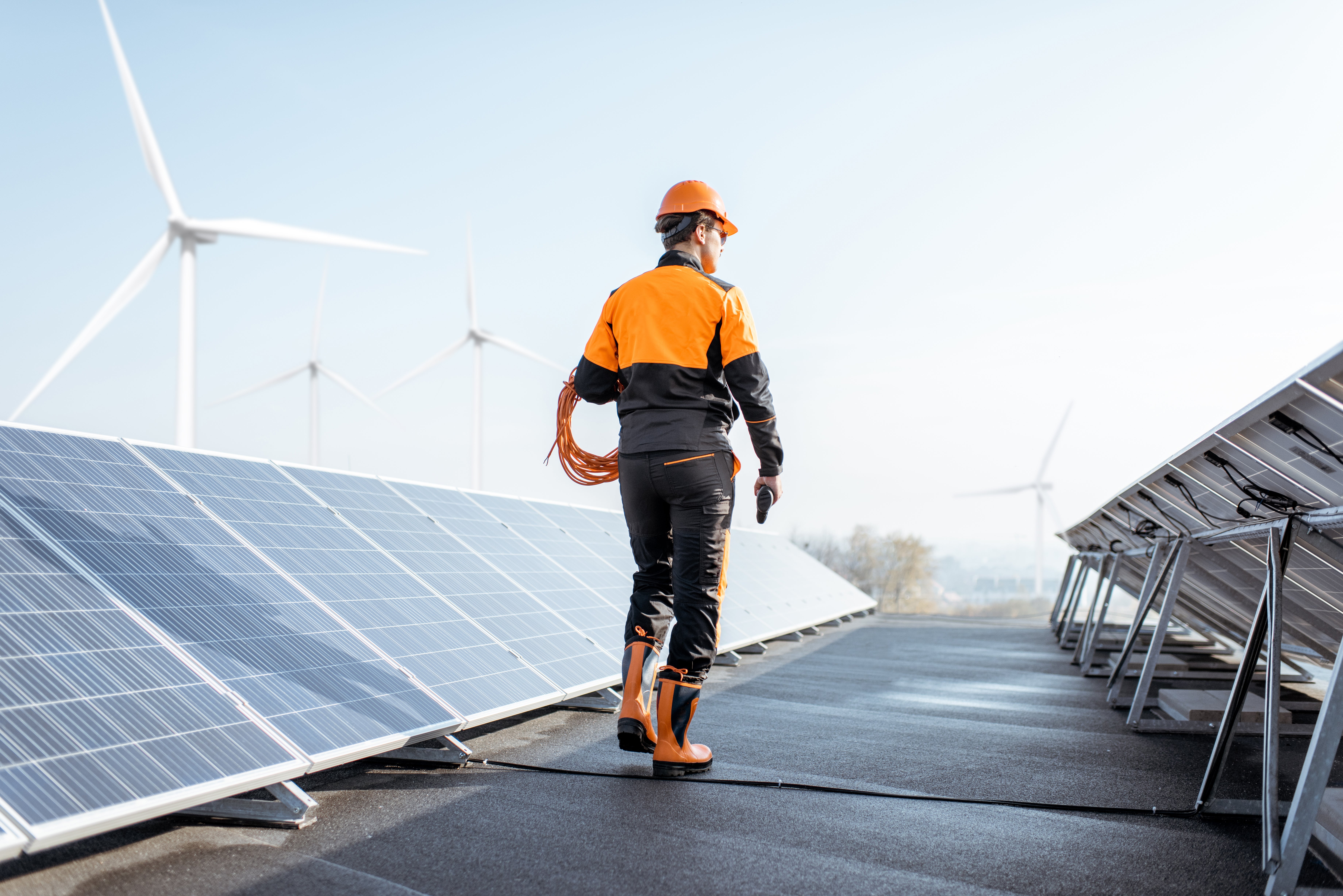Investment in renewable energy can deliver more jobs than fossil fuels, report finds
Exclusive: Investment in low carbon energy and energy efficiency can deliver more jobs than gas or coal power

Your support helps us to tell the story
From reproductive rights to climate change to Big Tech, The Independent is on the ground when the story is developing. Whether it's investigating the financials of Elon Musk's pro-Trump PAC or producing our latest documentary, 'The A Word', which shines a light on the American women fighting for reproductive rights, we know how important it is to parse out the facts from the messaging.
At such a critical moment in US history, we need reporters on the ground. Your donation allows us to keep sending journalists to speak to both sides of the story.
The Independent is trusted by Americans across the entire political spectrum. And unlike many other quality news outlets, we choose not to lock Americans out of our reporting and analysis with paywalls. We believe quality journalism should be available to everyone, paid for by those who can afford it.
Your support makes all the difference.Investment in renewable energy can create three times as many jobs as investing in fossil fuels, a new report has found.
Renewable energy has the potential to create three times as many jobs per million pounds invested compared to gas or coal power, while investment in energy efficiency can create five times as many, according to a report by the UK Energy Research Centre (UKERC).
The new research comes at a time when the price of oil and gas has soared in the wake of Russia’s invasion of Ukraine, exacerbating already rising energy prices and prompting calls for the UK to bolster its energy security.
Some Conservative backbenchers have said this is best done by increasing the production of the country’s own fossil fuel resources.
Green groups and climate campaigners, however, have called for the government to transition to renewables and better insulate buildings as a way of combating the climate crisis and rising cost of living at the same time.
The report by the UKERC, which researches employment challenges and opportunities presented by the transition to net zero, has found that investing in the transition to net zero and reducing the country’s reliance on natural gas will also boost the number of jobs.
“This research shows that supporting renewable energy or energy efficiency can generate more jobs for the same level of investment compared to investing particularly in gas,” Richard Hanna, a lead author of the report, told The Independent.
The government is expected to announce an energy security strategy to address these issues in the coming days.
As a result of its findings, the report calls on the government to develop the skills and supply chains needed to enable a nationwide programme of energy efficiency improvements in buildings, a shift to renewables and low-carbon heating.
With at least 19 million homes in the UK requiring energy performance upgrades, widespread job opportunities exist in areas such as energy efficiency improvements and the installation of low-carbon heat options, it said. The government’s Green Jobs Taskforce also anticipates further skills gaps with the expected growth of the UK’s offshore wind sector and the need to upgrade and expand electricity networks to support renewables capacity.
The UK has legislated to reach net zero planet-heating greenhouse gas emissions by mid-century. As part of its net zero strategy published in October last year, the government set out an ambition for investment to support up to 440,000 jobs by 2030 across net zero industries.
Earlier this year the Office for National Statistics reported that the number of people working in the low-carbon and renewable energy economy had remained fairly flat between 2015 and 2020.
While the government has set out numbers of how many people need to be trained in some sectors, Dr Hanna said there isn’t a sufficiently-coordinated strategy to address many of the skills shortages on the UK’s path to net zero.
“What’s really lacking is a clear roadmap on how many workers need to be trained in which areas and by which years in order to get to where we need to be,” he said.
He pointed to the example of heat pumps.
The government has a target of installing 600,000 heat pumps per year by 2028, but at the moment it’s been estimated that there are only around 2,000 full-time workers installing and maintaining these in the UK, he said.
Tens of thousands of qualified workers would be needed to install that many a year, he added.
Part of the reason there have been low numbers of heat pump installers and insufficient energy efficiency specialists is because energy efficiency in buildings has been “significantly underfunded” in the last decade, he added.
A spokesperson for the department of business, energy and industrial strategy said 56,000 green jobs had already been created and supported last year.
“We are unlocking £90 billion of private investment to forge opportunities in new British industries such as Gigafactories, offshore wind, and nuclear power generation,” the spokesperson added.
Read more on solar panels
Join our commenting forum
Join thought-provoking conversations, follow other Independent readers and see their replies
Comments